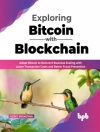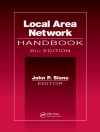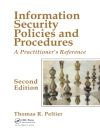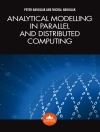Learn how to automate your Kubernetes infrastructure using Ansible. This book will enable you to automate more tasks and save time with this human-readable platform.
Containerized microservices deployed via Kubernetes allows you to save time, reduce human interaction and errors, and create applications that are more robust. You’ll learn how to automate the most redundant activities such as reports, services, the launch of a pod, adding permanent storage, configuring load balancing, and adding or modifying any Kubernetes parameter. You’ll also gain an understanding of end-to-end use cases and how advanced cluster automation, such as Helm packages and node states, are evolving.
Each lesson utilizes a specific use-case for the modern Kubernetes cluster and focuses on a single module from the most crucial parameter, complete with code demonstrations. Each code example is battle-proven in real-life with console interaction and verification.
What You’ll Learn
- Automate Kubernetes cluster management, cloud services, pods, and storage with Ansible
- Configure your Ansible controller node
- Write and execute Ansible Playbook code that follows best practices
- Augment your productivity by applying Infrastructure as Code (Ia C)
- Troubleshoot Ansible
Who This Book Is For
IT professionals who would like a jargon-free understanding of Ansible technology, Windows Systems Administrators, Dev Ops professionals, thought leaders, and infrastructure-as-code enthusiasts.
Jadual kandungan
Chapter 1: Modern IT Infrastructure and Hello App.- Chapter 2: Ansible Language Code.- Chapter 3: Ansible For Containers.- Chapter 4: Ansible For K8s Tasks.- Chapter 5: Ansible For Data Plane.- Chapter 6:Ansible For Control Plane.- Chapter 7: Ansible For K8s Cloud Providers.
Mengenai Pengarang
Luca Berton is an Ansible Automation Expert who has been working with Red Hat Ansible Engineer Team for three years. With more than 15 years of experience as a System Administrator, he has strong expertise in Infrastructure hardening and automation. Enthusiast of the Open Source supports the community by sharing his knowledge in different public access events. Geek by nature, Linux by choice, Fedora, of course.












